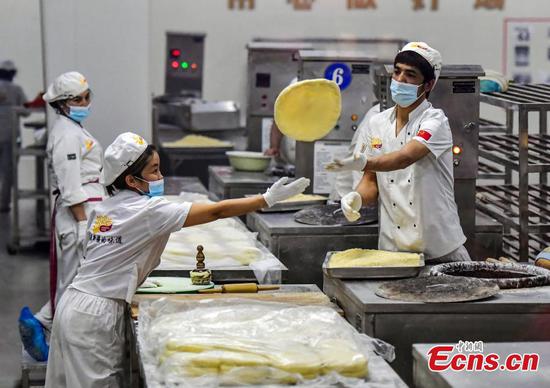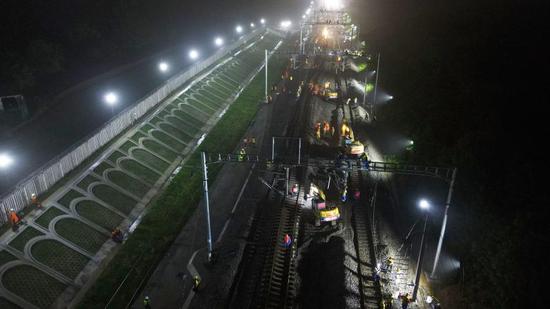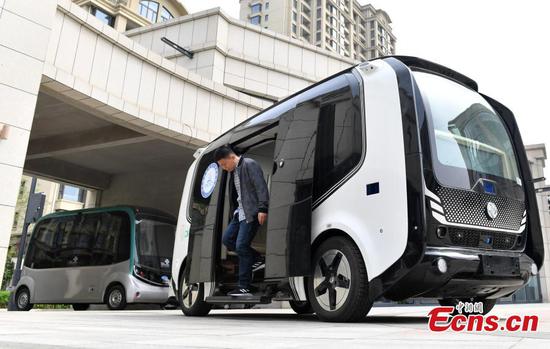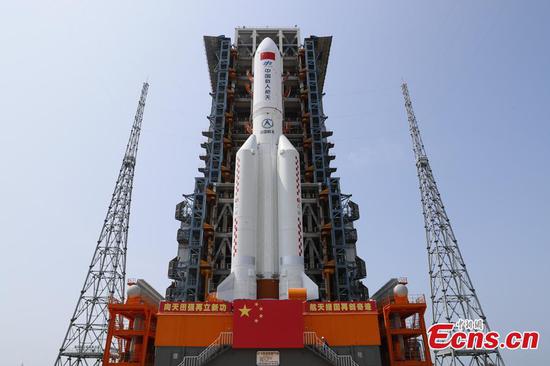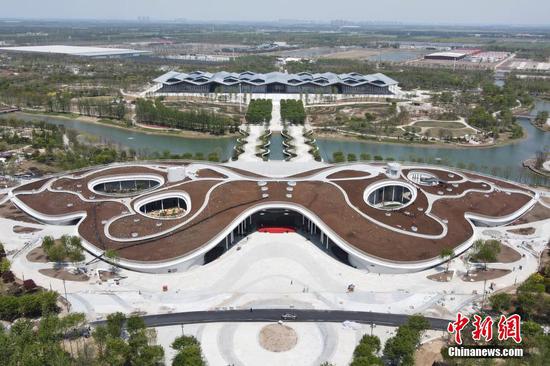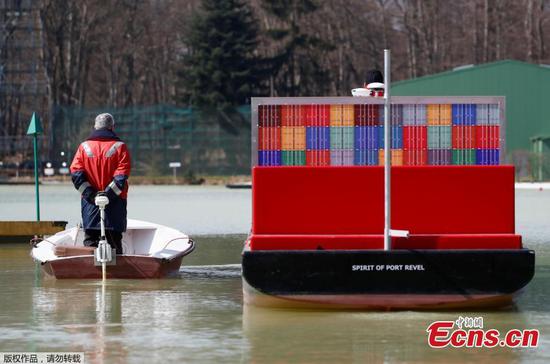
Farmers promote and sell green tea via livestreaming in Songtao county, Guizhou Province. (Photo by Long Yuanbin/for chinadaily.com.cn)
Digital retail sales of agricultural products promote the industrialization and standardization of China's farming sector development, raise farmers' incomes and boost consumption ability, thus promoting rural vitalization in the country, a recent report said.
The report, issued by the China Council for the Promotion of International Trade Academy, said that from both the supply and demand sides, digital retail is boosting rural consumption to become a burgeoning part of the domestic consumption sector.
It said that from the supply side, digital retail enriches the supply of consumer goods and promotes consumption upgrades in rural areas.
"For a long time, the commodity circulation system in China's rural areas was slower than that of urban areas, and many high-quality and low-priced commodities couldn't enter these areas. With the improvement of local infrastructure and the penetration of major e-commerce platforms into rural areas, digital retail has transformed the structure of rural commodities and service supply, offering rural consumers more diversified and higher-quality consumption choices," said the report.
Gao Xinmin of the Internet Society of China, said: "With increasing incomes of rural residents, there was an obvious trend in local consumption upgrade. New home appliances including solar water heaters, water purifiers and robotic mops have gradually entered the rural market, becoming household essentials, especially for young people."
From the demand side, the CCPITA report showed that digital retail helped raise farmers' revenue from agricultural products and thus increased their purchasing power.
According to the report, every additional 10,000 yuan ($1,545) of agricultural product income of farmers generates spending of 3,528 yuan, among which 1,131 yuan goes to online consumption.
The report also pointed out that with the expanding coverage of e-commerce in China's rural areas, the strong technology and logistics ability enables e-commerce platforms to help promote the industrialization and standardization of the country's agricultural development.
"The e-commerce platforms' technologies, such as artificial intelligence, big data and internet of things, together with their marketing channel abilities and image building abilities, empowered rural areas and helped create modernized, standardized and intelligent farms," said Chen Haifeng, general manager of the digital intelligent farming department of JD.
Zhao Ping, vice-dean of the CCPITA, said: "Digital retail has made it possible for agricultural products to be distributed directly from their place of origin, saving use of intermediate distribution links. As a result, agricultural products are more price competitive, and farmers' incomes are rising."
China's 14th Five-Year Plan (2021-25) envisages enlarging the coverage of e-commerce in China's rural areas.



















